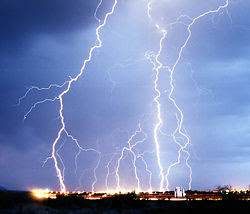
As oil prices rise, the pressure is mounting on the government to articulate a clear energy policy that begins to shift the focus from fossil fuels to environmentally friendly ones that don't increase in price every week. While it is important that a forward-looking energy policy be set in place quickly, it is even more important that it be set wisely.
In Thailand, the current push for E85 (85% ethanol) fuel for up to 60% of all passenger vehicles in Thailand in the near future, and to assure that a healthy percentage of those vehicles are manufactured in Thailand, is an example of a policy that may have been hatched too quickly. For one, major automobile manufacturers already operating in Thailand are not yet satisfied with the government's incentives for them to begin production of E85 cars here. Representatives of the 14 automakers gave this assessment to Industry Minister Suwit Khunkitti at a meeting in Pattaya early in the month. The government has offered to reduce the excise tax on E85 cars made in the country to 25% for small engines.
A bigger obstacle is likely to be the production of enough ethanol to power all those vehicles. At the present time the nation's ethanol producing plants are unable to supply enough fuel for use in E20 vehicles.
If such a dramatic production increase can be accomplished, care will have to be taken that it doesn't come at the cost of a drastic reduction in land available for agricultural production. Then too, studies indicate that the overall environmental benefit - and petrol savings - of biofuels is often negligible or nonexistent due to the "carbon footprint" involved in growing and producing the fuels.
Minister Suwit has indicated that the government would be willing to sweeten the deal for E85 auto manufacturers in order to realise its dream of making Thailand a hub for eco-friendly vehicle production. While this is a highly worthy goal, it might be worthwhile to take another look at the future of automobile manufacturing, which many believe is electric. Hybrid petrol/electric cars which generate their own electricity are already being mass-produced and get the kind of gas mileage that makes them, all things considered, probably more eco-friendly than ethanol vehicles.
It is quite encouraging, therefore, to see the recent announcement from Toyota Thailand that it will begin the production of hybrid petrol/electric Camrys in Thailand later this year, and within three or four years will be producing around 10,000 hybrid cars a year. Especially encouraging is that, according to Toyota Thailand president Mitsuhiro Sonoda, the government is offering a 10% excise tax on the cars, much lower even than the 17% offered to manufacturers of the eco-car. It's not known at this time if the hybrid car will be cheaper than the regular 100% petrol version because of the tax break, but around the globe, wherever they are sold there is a waiting list for hybrid cars, and doubtless this will be the case in Thailand.
Nevertheless, more incentives should be considered; 10,000 hybrid cars a year won't make much of a dent in the country's dependence on foreign oil, nor will it do much to reduce greenhouse gas emissions. Conservation and efficiency are probably the best tools in the near term to accomplish these important goals.
Planting the seeds for a hybrid automobile hub in Thailand makes excellent financial and environmental sense. For the longer term, Thailand's leadership should be thinking about attracting makers of 100% electric cars. The key to real success will be in producing the electricity in an environmentally sustainable way.
P.S. Do you agree in this? Is it possible in Thailand to use electric substitution?
If one day we have use it, it's gonna be friendly to our environment for sure. But, it will be at higher price than another because you must pay for new technology.
ไม่มีความคิดเห็น:
แสดงความคิดเห็น